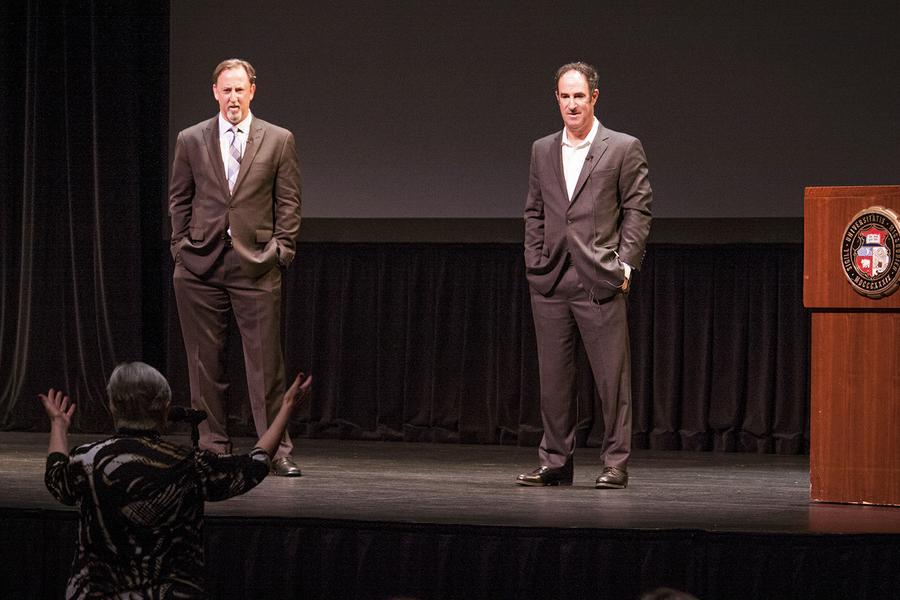In September 1980, a brown-haired freshman from California turned in a story to
The Maneater editors. He wrote a preview on the Kansas State football team that MU would play later in the season. After his first story, the freshman decided not to continue writing for the paper. An average student in high school, he was determined to focus more on academics in college.
Thirty-five years later, Steve Fainaru is a Pulitzer Prize winner for international reporting and has co-authored “League of Denial,” an investigative book on brain injuries in the National Football League.
Fainaru graduated from MU in 1984 and has since worked for The Boston Globe, The Washington Post and ESPN. He won the Pulitzer Prize in 2008 (http://www.pulitzer.org/biography/2008-International-Reporting) for a story he wrote on private armies in Iraq while working for The Washington Post.
Last Thursday, Fainaru came to speak at MU with his brother Mark Fainaru-Wada about “League of Denial,” which they wrote together. Both brothers currently work for ESPN. Though Fainaru still loves watching football, future research could impact his feelings towards the sport.
“At some point we will know in a much more sophisticated way, I think, what the real risk of playing football is and what percent of NFL players get brain damage,” Fainaru said. “And if it’s as high as some people suspect that it is, there’s going to come a point where how can you justify watching it if you know what you’re rooting for is people getting destroyed?”
Fairanu-Wada graduated from Northwestern University in 1987 and co-wrote “Game of Shadows,” a bestselling book on steroid use in baseball.
In the fall 2011, Fainaru-Wada began working on a story about Fred McNeill, a former linebacker for the Minnesota Vikings who developed dementia after a 12-year NFL career. McNeill filed suit against the NFL in a workers’ compensation case.
While working on the McNeill story, neurosurgeon Julian Bailes suggested that Fainaru-Wada write a book about the NFL’s problems with concussions. Fainaru-Wada turned to his brother to see if he would like to work with him.
“Steve’s the best reporter I know, he’s phenomenal,” Fainaru-Wada said. “He also sees a narrative in books really clearly and so he said yes.”
And with that, “League of Denial” was born. The brothers started research in early 2012 and published the book in October 2013. The book came out with a PBS Frontline documentary of the same name. Both brothers are featured in the film.
ESPN initially teamed up with PBS on the documentary but eventually dropped out of the project. The New York Times reported that pressure from the NFL supposedly led ESPN to make this decision.
“Steve and I have both been really quick to point out to everybody that while that’s a weird and screwed up situation and was unpleasant on many levels, the book and the documentary are largely creatures of ESPN,” Fainaru-Wada said.
The book revealed evidence that the NFL had worked to cover up the connection between football and brain damage.
“There are a lot of former football players out there who are hurting (and) who have very serious neurocognitive issues and so that’s an issue not only for them, but for everybody who loves them,” Fainaru said. “I think that’s one of the reasons why what the NFL did for such a long period of time was so insidious because they were denying the reality of a problem that so many people were living with.”
The brothers would have been hard-pressed to find a better topic to write about. Fainaru said the NFL concussion scandal provided a unique and powerful storyline.
“Journalistically for us, that’s an interesting dichotomy: the tension between the sport that’s so popular, so embedded in the culture, learning that very thing from which it derives its appeal can be destructive and even lethal,” he said. “Journalistically that’s a pretty good story.”








